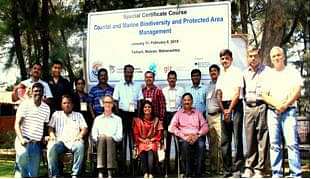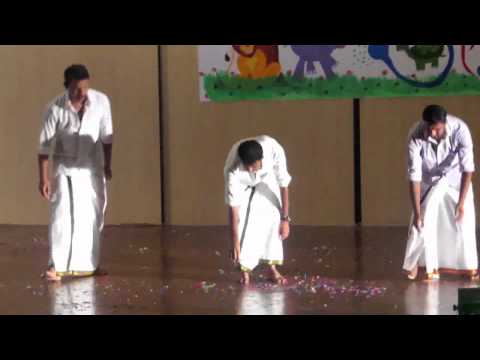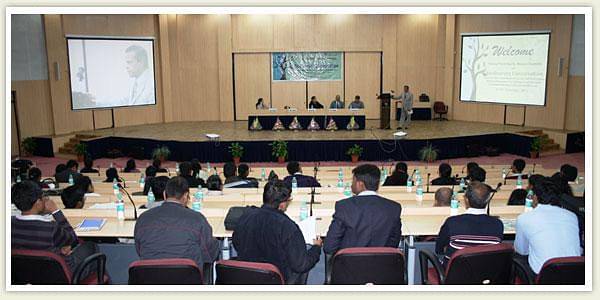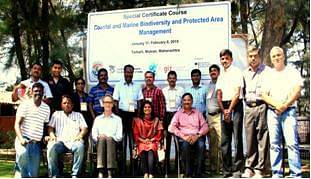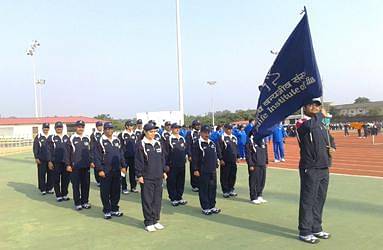Wildlife Institute of India Latest Updates
Registration for Wildlife Conservation Course Now Open - Applications are now open for the Wildlife Conservation course, specifically aimed at individuals looking to understand wildlife conservation better. The course will offer both classroom learning and a field visit to provide practical experiences.
New Course on Wildlife Conservation - The course will include lectures on Indian biogeography, wildlife conservation issues, science and management of large mammal populations, wildlife trade, and management of wild animals in stress. There will be evening lectures on select conservation projects and a five-day field visit to a Protected Area near Dehradun.
About Wildlife Institute of India
India’s first wildlife institution, Wildlife Institute of India (WII), Dehradun, was founded in 1982, it is under the Government of India and the Ministry of global climate change, Forest and Environment. WII is an Internationally Acclaimed Institution, which offers training programs, academic courses, and advisory in wildlife research and management. The prestigious institute is actively engaged in research across the breadth of the country on biodiversity-related issues.
The research projects of WII are being conducted in field sites across the length and breadth of the country and are the first sources of scientific information to assist conservation. They're also the means of keeping the institute's faculty au courant current field situations and therefore the latest technology.
It has had the advantage of international and bilateral collaborations for institutional building, faculty development, infusion of recent technology, and creation of scientific infrastructure. These collaborations are figured out with wildlife organizations, scientific institutions, and universities at the national and international levels. Wildlife Institute of India (WII) is effectively occupied with research on the broadness of the state on biodiversity-related issues.
Wildlife Institute of India courses includes 3 programmes across streams a wildlife sanctuary, wildlife management, ecosystem, heritage conservation and management, etc. They also offer academic degree courses, postgraduate courses, certificate courses, and short-term courses. WII Dehradun offers preparation programs, scholarly courses, and warnings in natural life research and therefore the executives.
Admission to the Wildlife Institute of India is mostly merit-based but for the M.Sc courses, candidates need to have a valid score in the NET exam. The shortlisted candidates will then have to go for the Personality Aptitude Test and Interview. The Wildlife Institute of India fees for the courses ranges from Rs 3.52 lakh to Rs 11 lakh, varying depending on the degree level and duration of the course.
The Wildlife Institute of India campus in Dehradun is huge with all the necessary facilities made available for the students like an auditorium, guest houses, hostels, library, and sports facilities. Located in the picturesque Dehradun, the WII campus is well connected by road and rail. There is also an airstrip located at Jolly Grant about 21 km. from the main city.
Top Courses at Wildlife Institute of India
| Course Name | Apply Now | Fees | Short Eligibility |
| B.A. (Bachelor of Arts) | ₹6,00,000 | 10+2 education from a recognized board or institution, minimum aggregate score of 50%, studied English as a compulsory subject | |
| M.Sc. (Master of Science) | ₹14,000 | Bachelor's degree in any branch of Life Sciences, Environmental Sciences, Forestry, Veterinary Sciences, Agriculture, or related field, Minimum aggregate score of 50% or equivalent CGPA for general category, Minimum aggregate score of 45% or equivalent CGPA for reserved categories | |
| Post Graduate Diploma | ₹14,64,000 | Bachelor's degree in any discipline from a recognized university, background in biology, zoology, forestry, environmental science, or ecology preferred | |
| Certificate | ₹1,40,000 | 10+2 education from a recognized board or institution, Proficiency in English, Physical fitness, Ability to work in challenging field conditions |
Table of Contents
Wildlife Institute of India Courses and Admission 2025
The application fee for WII is 1000 INR for Indians. For the foreigners, the application fee is US $200.
The courses offered here are across streams like a wildlife sanctuary, wildlife management, ecosystem, heritage conservation and management, etc. Also, other academic degree courses, postgraduate courses, certificate courses, and short-term courses are available at the Wildlife Institute of India Dehradun. It also offers preparation programs, scholarly courses, and warnings in natural life research for the students to get a proper understanding of the programmes.
The institute offers degrees like M.Sc and PG Diploma along with other Certificate courses and short-term courses. Wildlife Institute of India admissions to these courses are mostly merit-based except for M.Sc. Candidates willing for admission in the M.Sc programme must have a valid score in the NET exam. This will be followed by a Personality Aptitude Test and Interview for the shortlisted candidates.
The Wildlife Institute of India fees for the courses ranges from Rs 3.52 lakh to Rs 11 lakh, varying based on the degree level and duration of the course opted for. WII Dehradun also offers merit scholarships as well for M.Sc students.
Given below are the eligibility criteria for the Wildlife Institute of India Dehradun admissions:
Wildlife Institute of India Eligibility Criteria 2024
- Eligibility criteria for M.Sc courses at the Wildlife Institute of India
Candidates applying must have a minimum of 15 years of formal education (either 10+2+3 or 11+2+2). For admission, a candidate will need to sit for a NET exam. Shortlisted candidates are going to be involved in the Personality Aptitude Test and Interview. For the ultimate selection, 50% weightage is given to both NET and PAT.
- Eligibility criteria for PG Diploma courses at Wildlife Institute of India
Candidates applying should possess a background of Forestry training with a minimum of baccalaureate in any of the natural sciences. Foreign applicants must have a minimum Bachelor’s Degree in Forestry/ Natural Resource Management (NRM) with proficiency in English.
- Eligibility criteria for Certificate courses at Wildlife Institute of India
This is for those who are in-service Officers of the rank of Deputy Range Officers /Range Forest Officers or equivalent and are having a minimum of upper Secondary (12th) standard education and a basic course in forestry.
Wildlife Institute of India Selection Criteria 2024
For M.Sc Admissions
- Selection criteria: valid scores in NET/PAT/TOEFL / IELTS
- Eligibility criteria: candidate will need to sit for a NET exam. Shortlisted candidates are going to be involved in the Personality Aptitude Test and Interview. For the ultimate selection, 50% weightage is given to both NET and PAT.
For PG Admissions
- Selection criteria: DCF/ACF or any other officer working in national parks, wildlife, sanctuaries, universities and foreign nationals including SAARC countries.
- Eligibility criteria: possess a background of Forestry training with a minimum of baccalaureate in any of the natural sciences. Foreign applicants must have a minimum Bachelor’s Degree in Forestry/Natural Resource Management (NRM) with proficiency in English.
For Certificate Courses Admissions
- Selection criteria: On the basis of experience, age, physical fitness and other qualifications.
- Eligibility criteria: in-service Officers of the rank of Deputy Range Officers /Range Forest Officers or equivalent and are having a minimum of higher Secondary (10+2) standard education and a basic course in forestry.
Wildlife Institute of India Highlights
- Avg Fee5.54 Lacs Yearly
- Gender AcceptedCoed
- Institute TypeGovernment
- Study ModeRegular
- Established Year1982
Wildlife Institute of India Placements
The Environment Impact Assessment Cell (EIA Cell) provides placement opportunities for scholars pursuing academic and professional courses in ecology offered by several institutions outside WII. These opportunities are utilized by students from India and overseas.
The purpose of EIA Cell is :
- To Promote the mixing of biodiversity concerns within the environmental appraisal of the development projects.
- To Develop innovative methodologies, systems, and different tools that facilitate environmental assessment, efficient synthesis of environmental information, and credible decision-making.
- Build the capacity of institutions and individuals through opportunities for training, workshops, and placement.
- Provide advisory support for decision-making at the apex level.
The students at the WII are most placed within the government sectors and central sectors. Most Wildlife Institute of India placements was within the research field where the scholars were placed.
Wildlife Institute of India Internships 2022
Wildlife Institute of India, Dehradun provides internships to scholars. EIA Cell helps students to urge internships in India and Foreign Countries. WII provides internships to those that don't belong to the WII campus.
Wildlife Institute of India Cut Off
The cut-off and eligible students' list is published on the college's official website. On the University's official website, candidates who registered for various Wildlife Institute of India (WII) programs can view their admission results in the form of merit lists. The following is a step-by-step procedure for checking the same:
- Go to the Wildlife Institute of India’s (WII) official website.
- Scroll down the page to the 'Important Announcement' area.
- Select 'Admission' from the drop-down menu, and a list of notifications will appear. Check the merit list by clicking on the applied programme.
- A menu will appear on the following page, allowing you to view the merit list in PDF format.
Wildlife Institute of India Entrance Exams 2022
Valid scores from several state and national level entrance exams are accepted by WII Dehradun. Entrance exam scores are compulsory for M.Sc., PG, and Certificate Courses admissions. Students are selected based on their rank and merit.
Entrance Exams for Wildlife Institute of India M.Sc. Admission 2022
A valid score in NET/PAT/TOEFL / IELTS is accepted for M.Sc. admissions at WII.
Entrance Exams for Wildlife Institute of India P.G Admission 2022
DCF/ ACF or any other officer working in national parks, wildlife, sanctuaries, universities and foreign nationals including SAARC countries is accepted for PG Diploma admissions at WII Dehradun.
Entrance Exams for Wildlife Institute of India Certificate Courses Admission 2022
A valid score in experience, age, physical fitness, and other qualifications. is accepted for Certificate Courses admissions at WII.
Wildlife Institute of India Reviews
Wildlife Institute of India FAQs
When was the college , WII , Dehradun established ?
Is WII , Dehradun a government college?
Wildlife Institute of India Campus Facilities and Infrastructure
The institute offers a good range of course-related amenities. The school rooms are ordinary, but there's an outsized library where you'll expand your knowledge. Food is obtainable within the canteen for 18 hours, and you'll also purchase food outside the WII Dehradun campus. Nurses will assist you within the on-campus clinic.
Wildlife Institute of India Infrastructure
The Library and Documentation Center was established in line with WII’s mission as multidisciplinary information and learning resource center on biodiversity conservation and management. The L&DC holds over 25,958 books, 20,600 newspaper clippings, 7,350 maps/toposheets, and quite 6,225 bound volumes of old and rare. The middle provides online access to all or any relevant journals and archives.
Services Offered by the Central Library at the Wildlife Institute of India campus:
- The library is automating its operations with SOUL 2.0 software and offering these services to its patrons.
- Reading\ Lending\ Reference\ Referral.
- Services for Current Awareness.
- Special Service - The Central Library provides a computer lab with internet access and reliable power backup for their research.
The laboratory extends technical inputs in teaching, training, and analytical fields to research projects and ongoing training programmes of the Institute. The laboratory is provided with various basic and modern equipment (Digital pH and Conductivity Meters, Spectrophotometer, Digital Balance, Digital Furnace, Hot Air Oven, Atomic Absorption Spectrophotometer (AAS), High-Performance Liquid Chromatography (HPLC), UV-Visible Spectrophotometer, Microwave Digester, Automatic Nitrogen Analyser, Automatic Fiber Analyser, Microscopes, Ultra pure Water Purification System, etc.) required for the analysis of varied Physico-chemical parameters of plant, soil and water samples.
The WII Dehradun Herbarium was established in 1986 with a view to making a facility for the identification of plant specimens collected from the sector by the school, researchers, and students of WII. The Herbarium has grown considerably since then with the addition of the Wildlife Institute of India Campus, Chandrabani, and Dehradun. The mandate of develop a computerized database on the plants of conservation value also as the flora of various protected areas within the country.
Wildlife Institute of India Facilities
- Hostel
- Library
- Cafeteria
- ATM
- Medical Clinic
- Study Center
- Student Advisory Cell
- Research labs
- Computer labs
- Auditorium
- Sports
Campus Facilities
Wildlife Institute of India Faculty
- B. C. ChoudhuryDepartment of Endangered Species Management
- Dr. Asha RajvanshiDepartment of Habitat Ecology
- Dr. Bidyut Kumar MishraDepartment of Ecodevelopment
- Dr. G. S. RawatDepartment of Habitat Ecology
- Dr. Karthikeyan VasudevanDepartment of Animal Ecology and Conservation Biology
Wildlife Institute of India Scholarships
The WII Dehradun offers scholarships to scholars supporting their merit marks. The scholarship is awarded within the fee waiver monthly. This will be highly useful to the scholars. Under the project’s outreach and the awareness component, a singular participatory program i.e., the Dugong Scholarship Scheme was initiated to interact with the local fisherfolk communities at the grassroots level. This program targets the school-going children of the local communities (most of them are fisherfolk) and provides them with a scholarship of Rs 500 / month for a period of two years to support their education.
Wildlife Institute of India Eligibility Criteria for Scholarships
The basic eligibility criteria to avail of the Wildlife Institute of India Dehradun scholarships are:
- The applicant must be an Indian citizen and a permanent resident of India.
- The applicant should have completed their studies in a government-approved or government-run institution.
- The award is open to students from the OBC, SC, ST, and Minority categories.
- The award is open to applicants whose family's annual income is modest and who require financial aid to continue their studies.
- Candidates must have received a minimum of qualifying grades in previous classes.
How to Apply for the Wildlife Institute of India Scholarships?
WII update the scholarship details and merit students' details who get scholarship on the university noticeboard. And informs the students on how to apply for the scholarship.
Wildlife Institute of India Awards
Wildlife Institute of India Awards (WII) Dehradun received awards for best managed protected areas in India.
What's New at Wildlife Institute of India Dehradun?
Wildlife Institute of India, Dehradun builds up knowledge on wildlife resources. It provides students with knowledge about knowledge and advice on specific wildlife management problems. Train personnel at various levels for conservation and management of wildlife. perform research relevant to management, including developing techniques appropriate to Indian conditions.
WII, Dehradun collaborates with international organizations on wildlife research, management, and training. Develop as a regional centre of international importance on wildlife and natural resources conservation.
Wildlife Institute of India Courses
The institute offers 3 programmes across streams a wildlife sanctuary, wildlife management, ecosystem, heritage conservation and management, etc. The Wildlife Institute of India courses also includes academic degree programmes, postgraduate, certificate, and short-term programmes. It offers preparation programs, scholarly courses, and warnings in natural life research and therefore the executives.
Admission to the Wildlife Institute of India is mostly merit-based except for the M.Sc courses, for which candidates need to have a valid score in the NET exam. The shortlisted candidates will then have to go for the Personality Aptitude Test and Interview. The Wildlife Institute of India Dehradun fees for the courses ranges from Rs 3.52 lakh to Rs 11 lakh, varying depending on the degree level and duration of the course.
Wildlife Institute of India Fee Structure and Course List
Given below are the courses offered here along with the Wildlife Institute of India fees in a tabular format:
| Course | Specialisations | Total Fees | Duration |
| M.Sc | Wildlife Science | Rs 5.53 Lakh | 2 years |
| Heritage Conservation and Management | |||
| PG Diploma | Advanced Wildlife Management | Rs 11 Lakh | 10 months |
| Certificate | Wildlife Management | Rs 3.52 Lakh | 6 months |
| Short Term Courses | Wildlife Management, Interpretation and Conservation Education, Environment and Nature Conservation, Zoo Management | - | 1-3 weeks |
Wildlife Institute of India, Dehradun Courses
Here is a detailed description of the courses offered at the Wildlife Institute of India Dehradun:
Masters in Wildlife Science: 2 years Duration
Objectives The M.Sc courses in Wildlife Science are developed to impart training within the field of wildlife science and to further the explanation for wildlife conservation in India etc. For several years, there has been a requirement for increased research and monitoring of the wildlife populations and their habitats everywhere in the country. The threat of species extinction is consistently increasing and therefore the ways to alleviate them require a scientific approach.
Numerous management plans for Protected Areas in India must require a robust scientific basis for successful implementation. Further, the management practices, wildlife habitat, and species populations need constant monitoring if the conservation efforts are to be effective. All these need trained personnel. This course aims to train wildlife biologists who will effectively tackle these issues and challenges.
The two-year course in Wildlife Science at the Wildlife Institute of India (WII) not only seeks to satisfy the increasing demand for research and monitoring of wildlife and their habitats, and supply trained biologists to further the explanation for wildlife conservation but also is a model for developing education elsewhere within the country.
Post-Graduate Diploma Course in Advanced Wildlife Management: 10 months
Ecosystems and biodiversity underpin the worldwide economy and humans’ well-being. Despite the tremendous ecological and economic importance and therefore the existence of a policy and regulatory framework, global wildlife is under threat. Numerous direct and indirect pressures arising from differing types of economic development and associated activities are having adverse impacts on wildlife across the planet. Additionally, global climate change, human-wildlife conflicts, invasive species, habitat fragmentation, etc. are to possess a growing impact on wildlife and their habitats.
Certificate Course in Wildlife Management : 3 months Duration
The main objectives of the course are to:
- Provide understanding and knowledge of modern concepts in wildlife management,
- Provide insight into relevant conservation policies and legislation and their enforcement mechanism at the global and native levels,
- Provide hands-on experience and training in the use of recent scientific methods, techniques and tools that are required for biodiversity assessment and monitoring of conservation goals,
- Develop an understanding of landscape approach to conservation and skills for scientific wildlife management planning,
- Develop scientific skills for resolving human-wildlife conflict including capture, handling, care and management of untamed animals.
Masters Course in Heritage Conservation and Management: 2 years Duration
The UNESCO Category 2 Center (C2C) for World Natural Heritage Management and Training for Asia and therefore the Pacific Region at Wildlife Institute of India, Dehradun was established in 2015 to understand the objectives of the UNESCO World Heritage Convention, 1972 by building the capacity of World Heritage professionals through training, research and knowledge dissemination. The middle has conducted numerous thematic capacity-building and outreach programmes on world heritage conservation. This includes disaster risk reduction, culture-nature linkages, ecotourism, justice and sustainability and outstanding universal value (OUV) analysis together with technical and academic institutions both in India and abroad.
Below are the details of the departments in the Wildlife Institute of India and department heads.
| Department | Head |
| Animal Ecology and Conservation Biology department | Dr S.K. Gupta |
| Ecodevelopment Planning and Participatory Management | Dr Ruchi Badola |
| Endangered Species management | Dr Gopi G. V. |
| Habitat Ecology | Dr B. S. Adhikari |
| Landscape-level planning and Management | Dr V. P. Uniyal |
| PA Network, Wildlife Management and Conservation Education | Dr Gautam Talukdar |
| Population Management, Capture and Rehabilitation | Shri Qamar Qureshi |
| Wildlife Health Management | Captain Dr Parag Nigam |
Wildlife Institute of India Application Process 2025
The application process at the Wildlife Institute of India Dehradun starts with filling out the admission form available both online and offline. Students are advised to see their eligibility and selection criteria before form filing.
M.Sc Courses
Applicants for the M.Sc. course must follow the steps mentioned below:
Indian Candidates
- Visit the official website of WII Dehradun.
- Fill out the registration form available on the website.
- After successful online registration, Candidates need to fill out a form and pay the Wildlife Institute of India application fee of Rs 1,000.
- In the form candidates need to upload a recent passport size photograph, scanned copies of faculty certificate/ valid passport as age proof, Graduation mark sheets and degree (Previous/Final Year), and caste certificate (applicable for candidates seeking reservation quota).
- Candidates need to take the printout of the filled form and send it to the given address i.e. “The Course Director”, XVI M.Sc. Wildlife Science Course, the Wildlife Institute of India, Chandrabani, Dehradun – 248001 (Uttarakhand).
- The Wildlife Institute of India application form should be sent by registered mail positively by May 07. The envelope containing the appliance of the in-service candidate being sent through the proper channel should be marked "APPLICATION OF IN-SERVICE CANDIDATE FOR XVI M.Sc. WILDLIFE SCIENCE COURSE".
Foreign candidates
- Foreign candidates also will need to visit the Wildlife Institute of India website and fill out the form.
- Candidates will need to upload a recent passport size photograph, scanned copies of passport with a validity period till June 30, 2020, school leaving certificate, reference letters from 2 persons, proof of International English Testing System (IELTS) or Test of English as a far-off Language (TOEFL) score (if applicable).
- Eligible foreign candidates need to pay an application processing fee of US$ 200 or equivalent. The fee for SAARC nationals is US$ 100 or equivalent.
- Fees are often transferred electronically to a WII account. The e-banking details are Union Bank of India; Beneficiary - Director, Wildlife Institute of India, Dehradun; Account Number - 518502010000001; IFSC Code - UBIN0551856; Swift Code - UBININBBDER; Purpose - M.Sc. Wildlife Science Application Fee. Details of e-banking/fee transfer got to be mentioned within the application.
- The results of selected foreign nationals are going to be available on WII’s website before April 2 of the admission year and selected students also will be told by email.
- Selected students need to confirm sponsoring/funding support so they process their applications for seeking the govt of India’s approval for security and other related issues.
Certificate Courses
- Candidates seeking admission to Certificate courses got to apply via offline mode.
- Visit the official website of WII.
- Go to the course tab on the house page and click on the specified course.
- Download the Wildlife Institute of India application form.
- Fill it out and send it to XXXIII Certificate Course in Wildlife Management, Wildlife Institute of India, P. Box No. 18, Chandrabani, Dehradun – 248 001, Uttarakhand, India., Tel:135-2646350/2646205, Fax: 135-2640117
PG Diploma Courses
For admission to the PG diploma course, nominations of the eligible candidates either foreign or Indian candidates duly completed altogether respect should be addressed to Dr Sonali Ghosh, Course Director.
A copy should even be sent to Dr G.S. Rawat, Dean, Faculty of Wildlife Sciences and Dr Gautam Talukdar, Associate Course Director.
How to Fill Wildlife Institute of India Application Form?
- To fill out the WII application form, candidates must visit the official website of the WII.
- Once candidates have landed on the homepage, they need to pick the 'Admission' window.
- After that, click 'Apply Now' to start filling out the form.
- Read the admissions guidelines carefully before signing the declaration. Click 'I agree' to continue filling out the appliance form.
- Fill up your personal information on the primary page of the Wildlife Institute of India from 2022, including your name, address, country, gender, guardian information, telephone number, and email address. Click the 'Save & Next' button once you complete.
- Then, beginning with Class 10 and ending with the foremost recent qualifying degree/exam, enter all of the tutorial qualification information.
- All essential documents must be in PDF format.
- Make a Rs 1000 payment using net banking, credit/debit card, UPI, etc.
- Print the appliance form and post it to the WII, Dehradun campus.
Wildlife Institute of India Application Fees
The WII Dehradun application fee is Rs 1000 for Indians. For foreigners, the application fee is US $200.
Wildlife Institute of India Admission Dates 2022
- A 42nd Post-Graduate Diploma Course in Advanced Wildlife Management was organized from November 1, 2021, to August 31, 2022
- Certificate Course in Wildlife Management: from November 1, 2021, to January 31, 2022.
Wildlife Institute of India Curriculum
- The M.Sc. course in wildlife science maybe a two-year full-time curriculum offered within the sort of Choice-based system organized into 4 semesters of 24 credits each.
- Each semester is structured into different theory papers, assignments, field practicals, tour journals, and lab practical papers which can be evaluated during the semester.
- In all, there'll be six field tours namely the Orientation tour, Techniques tour, National park tour, Wetland field tour, High Altitude Techniques tour, and Conservation Practice and Management tour. These tours are compulsory and a part of the curriculum and can be conducted during the primary three semesters. The scholars are going to be required to organize tour journals and these are going to be evaluated during the respective semester.
- A study tour to a foreign country also will be organized by WII as a part of the Wildlife Management Tour. Therefore, Indian and foreign nationals joining the course must be in possession of their valid passports.
Wildlife Institute of India Faculty
The faculty of Wildlife Institute of India all graduated within the top universities of India and the world and therefore the research field. The school WII, Dehradun helps the scholars in placements, research fields, and better studies.
Wildlife Institute of India Research Facilities
The research agenda is set and guided by the Training, Research Advisory Committee (TRAC) comprising eminent conservationists, academicians and representatives of scientific organizations also with state wildlife organizations, which ensures that research conforms to the national conservation priorities. The TRAC meets twice a year to oversee and review the continued research and set the tone for future programmes.
Wildlife Institute of India provides ample opportunities for prospective candidates (both National and International) to advance their research and academic endeavours. Research Fellow and Technical Assistants are regularly engaged in various Research Projects administered by WII across the country on diverse species and themes. Most of those projects offer opportunities for college students to pursue higher academic degrees (M.Phil and PhD) from any University of their choice.
Wildlife Institute of India Contact Details
College Location
Dehradun
cdmsc@wii.gov.in
0135 264 0111
https://www.umu.ac.in
Admission Updates for 2025
Similar Colleges
SCC Kolkata
Explore More Science Colleges in Uttarakhand
- By State
- By City
By Degree
By Specialization
By Degree
By Specialization
- Colleges in Dehradun
- Wildlife Institute of India

